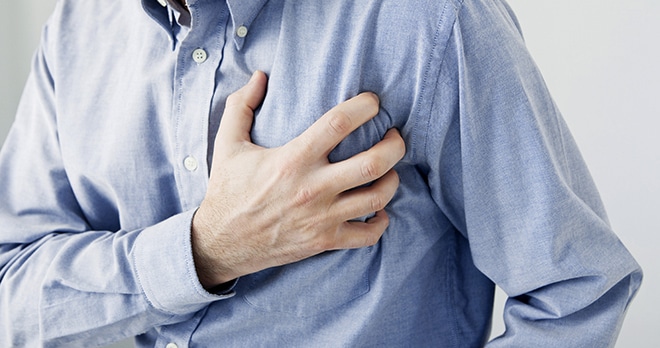NHS launches lifesaving campaign to tackle any myths relating to heart attacks

The aim of the campaign is to encourage people to dial 999 should they experience any early signs of a heart attack. The campaign, which is specific to heart attacks, known as ‘Help Us Help You,’ will run from 14 February to 31 March 2022.
According to NHS England, research has identified that three in four people thought a heart attack was the same as a cardiac arrest. Worryingly, a poll also showed that fewer than half of people said they would dial 999 if they or a loved one experienced lesser-known symptoms of heart attacks, such as sweating and uneasiness. NHS research showed that whilst 70% of those surveyed understood that pain in the chest is a symptom of a heart attack, just 41% knew sweating was a symptom and only 27% understood feeling weak, lightheaded or a feeling of general unease were also symptoms. I am not afraid to admit that I too, was unaware of some of these symptoms and fully encourage this new NHS campaign to raise awareness of some of the signs and symptoms of a heart attack which you may not necessarily know of.
Seeking early medical treatment is vital but sometimes symptoms associated with a heart attack can often be underestimated, and you may think they are not severe enough to warrant a trip to the hospital. However, the quicker you act, the better chance you have in achieving a full recovery.
The NHS campaign will also raise awareness of the difference between a heart attack and cardiac arrest. Briefly, a heart attack occurs when the supply of blood to the heart becomes blocked which can starve it of oxygen potentially causing serious muscle damage. A cardiac arrest usually occurs without warning and is when the heart stops. Whilst you may experience symptoms of a heart attack such as squeezing across the chest and sweating, with a cardiac arrest you may not necessarily experience any symptoms and can die within minutes if you do not receive treatment. When experiencing signs and symptoms of a heart attack, it can lead to a cardiac arrest which is why prompt treatment is so important – as well as knowing what symptoms to look out for. So, here they are (as reported by NHS England):
- Feeling lightheaded or dizzy
- Sweating
- Shortness of breath
- Feeling sick, or being sick
- An overwhelming sense of anxiety
- Coughing or wheezing
- Chest pain
- Pain in other parts of the body
Take note as if you do experience any of these symptoms, you may be suffering a heart attack and every minute counts!
If you have any questions about cardiac negligence claims, please contact our team
Call now